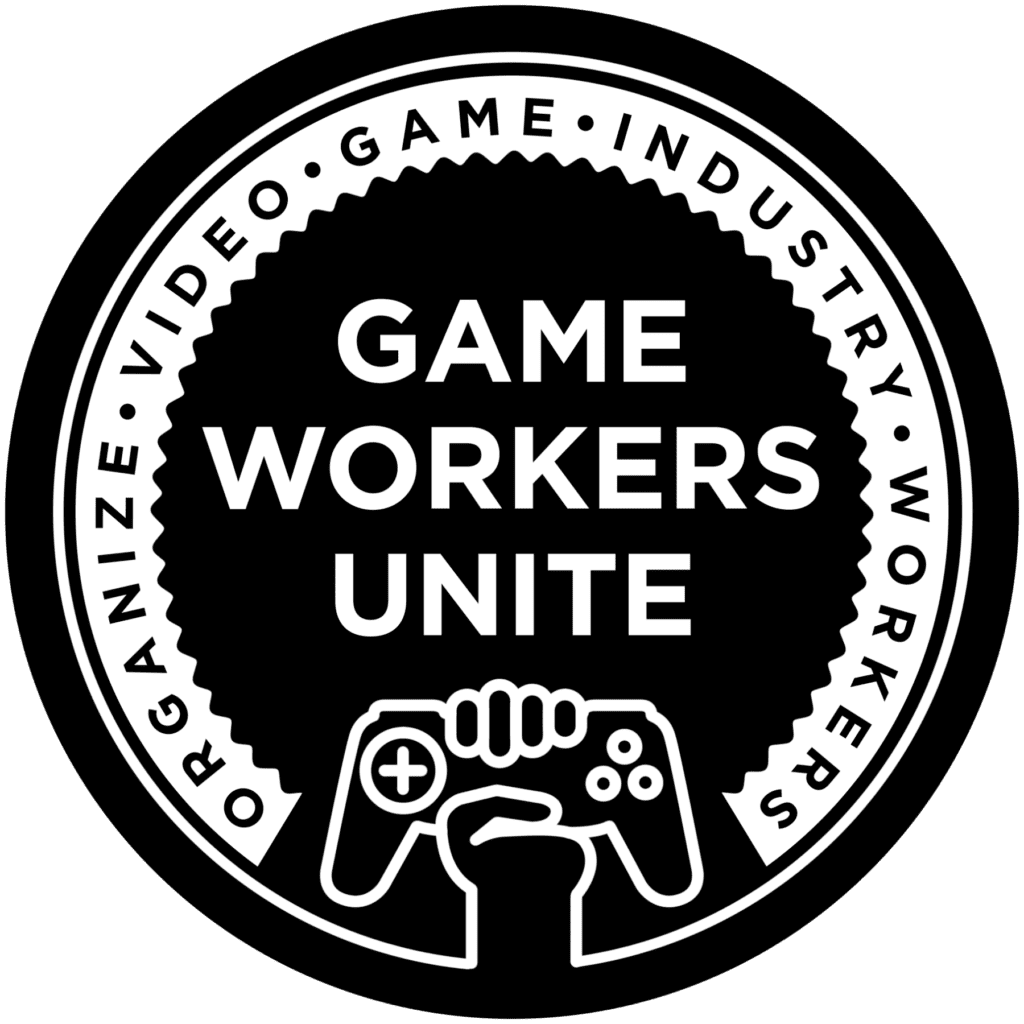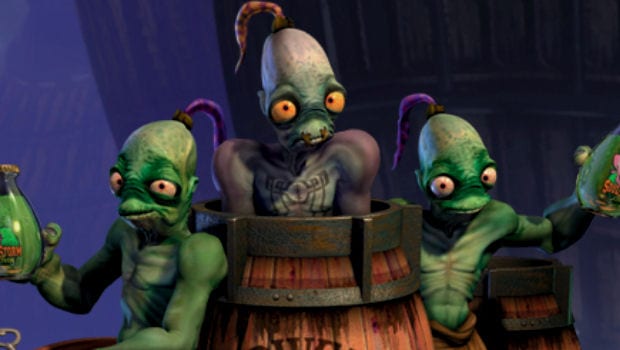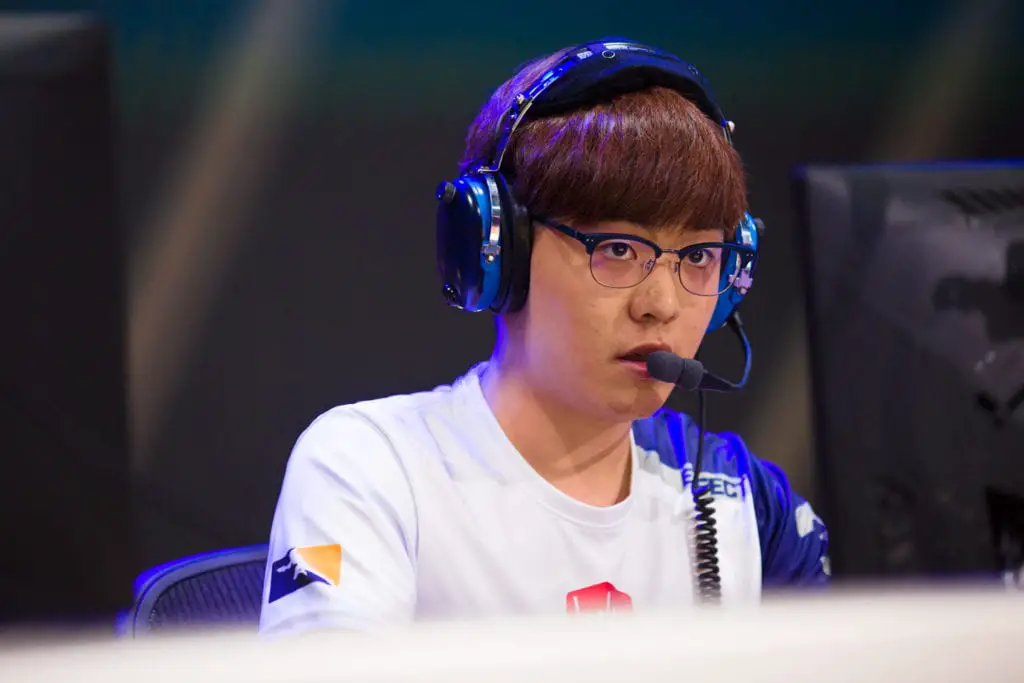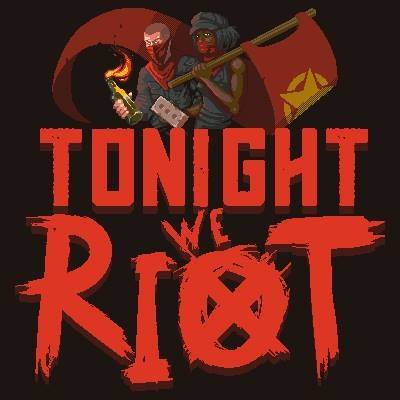September 3rd was Labor Day, a holiday meant to celebrate the rights and protections American unions have fought for since the 19th century i.e the five-day workweek, eight hour work day, child labor laws, etc. But there’s one industry where many of these rights, which a lot of us take for granted, aren’t a given: the gaming industry. Luckily, people are working to fix that.

To learn more, I sat down with Emma Kinema, a game developer and organizer for Game Workers Unite, an organization at the forefront of the fight for a more equitable games industry.
Dan Arndt: Can you give me a little rundown of Game Workers Unite? Who you are, what you do?
Emma Kinema: We are a grassroots democratic organization of people dedicated to advocating for workers’ rights and the crafting of a unionized game industry. We represent all workers in game development. We seek to increase the visibility of our cause through community building, sharing resources, and direct action. We seek to bring hope to and empower those suffering in this industry. We are actively forming local chapters of our organization so that our members can organize directly in their own communities.
Dan: What was the genesis of Game Workers Unite? Why did it form?
EK: GWU started out of the angry discussions of some game workers online about bad conditions in the industry and labor abuses. We decided to organize a little direct action around a both-sidesing panel on unionization in the game industry and we got such a massive response to the idea that we started planning to host meetups as well as create and distribute literature. Since then we’ve been gaining more members, organizing local chapters around the world, and pushing the needle on labor conditions in the game industry in a pro-worker direction.
Dan: What are some of the biggest problems facing labor in the gaming industry?
EK: There are countless issues, but rampant crunch due to bad management, lack of studio stability, large-scale contract employment, unpaid overtime, lack of comprehensive healthcare, poor crediting practices, and more count among them.
Dan: Can you explain what “crunch” is?
EK: The New York Times has defined crunch as “a sudden spike in work hours, as many as 20 days, that can last for days or weeks on end.” Some companies have pushed crunch upwards of several months. People have described experiencing stomach pains, memory loss, extreme anxiety, loss of family time, divorce, severe burnout, and more. Effectively, workers are trading their relationships and health so their employers can get
more money. Crunch is not sustainable, nor should it be planned. If we accept crunch as”part of the process,” then we accept our jobs will never get better.

Dan: Why do you think there’s such resistance to unionization efforts, both from within the industry and by fans? No industry probably wants to be pro-union but the games industry seems particularly resistant.
EK: Leadership in the game industry is typically quite libertarian and conservative, so they tend to be anti-union by default. Then, on top of that, greedy studio executives regularly choose to cut corners, skimp on pay, and don’t offer benefits so they can make an extra small return on their investments. Unions stand in direct opposition to those ways of viewing the working relationship between employer and employee, and instead demand fair and equitable treatment of workers and the ability to live a healthy and dignified life. That said, union workers tend to have a higher personal investment in their work and their company, as well as work at a higher level of product quality. Some employers understand this, however, and do embrace unionization.
Dan: Among gamers, actually working in the industry is still considered a “dream job.” Does this affect their ability to speak out?
EK: Many developers still view working in the game industry as a “dream job.” And in some ways that’s fair. Most of us come from a long time and deep passion for playing games, so to work on them is really exciting. However, we must be careful of words like “passion,” because it’s often an excuse to overwork someone, and to deny them healthy working conditions and fair pay.
DA: How can companies working in labor-friendly countries like Canada, France, or Poland get away with these practices?
EK: We would push back against the idea that those countries are “labor-friendly,” and we do so acknowledging your question’s premise. Game workers in nearly every country experience unjust labor conditions, and there is simply no existing structure holding studios accountable for their actions. We are a strange, small industry that is a hybrid of tech and entertainment. It’s easy for us to get lost in the cracks of existing labor forces. The only solution is for game workers to band together and collectively demand their seat at the table and access to their fair share of the profits. Only we can protect ourselves from exploitation.
Dan: How do you feel about all of the press so-called “anti-consumer” practices in gaming (loot boxes, EA’s decisions), and why are the conditions of devs routinely ignored?
EK: Game Workers Unite is not just against poor labor practices, we are against bad business practices as well. We agree with a lot of concerned players about exploitative business practices like loot boxes. We think workers have lots of common ground with players, after all, we are both being screwed by studios. The conditions of workers in the game industry are routinely ignored because traditionally games media and press are rather disconnected and ignorant of the realities of making games for a living. Thankfully that is changing, and the past few years have seen a real effort by games media to highlight labor conditions and what it takes to make games.

Dan: How do you feel about CDPR developing a game, Cyberpunk 2077, that uses the heavily anti-capitalist genre of cyberpunk even as they allegedly continue to exploit their workers?
EK: The cyberpunk genre has lately been lauded as an anti-capitalist, anti-racist, anti-ableist, and queer genre, but that hasn’t always been the case. The genre is a hugely mixed bag, but thankfully many wonderful authors, filmmakers, artists, and game developers are working to rehabilitate the genre. So I’d say Cyberpunk 2077 isn’t a huge departure from the roots of the cyberpunk genre, although it does seem to be astoundingly tone deaf and ignorant of any modern work in the genre, especially around issues of race, gender, and ability.
Dan: What is GWU’s ideal model for the game development workplace?
EK: The ideal model is worker-owned co-op studios. Anything short of that is going to inherently be a compromise with management and shareholders who care primarily about profit, even over the quality of the game or health of their workers. That said, we are strongly pursuing a future where rigorous and robust unions can hold the interests of capital at bay in the interests of workers.
“Only We Can Protect Ourselves From Exploitation”
Dan: Are streamers or e-sports players people who should reach out?
EK: Yes! We stand in solidarity with streamers and e-sports players, both of whom are regularly exploited by companies and whose livelihoods are beholden to large tech platforms. We welcome them into Game Workers Unite.
Dan: What do you say to critics who think that unionization, or organization in general, hurts more than it helps?
EK: Many of us have grown up hearing constant myths and untruths about unions, and I would encourage folks to reach out to actual unionized workers and listen to what they have to say. They are typically paid 30% more than non-unionized workers and have a higher level of investment in their work and companies. People tend to think of unions as some third party group who comes into a workplace, makes a lot of bold statements, gets between workers and their product, and ruins things, but that is untrue. A union is simply you and your coworkers, standing up together, and demanding your seat at the table and fair working conditions.

Dan: Do you have advice for anyone who may want to organize but are afraid of retaliation?
EK: Frankly, it’s smart to be a little scared to pursue labor organizing. Bosses and managers can be ruthless and try to retaliate and intimidate workers who stand up for their co-workers and themselves. That said, in many countries (the US included), it is a federal crime to fire or retaliate against any worker or group of workers who discuss labor conditions or unionization. That said, please do organize carefully. Start by talking to your most trusted friends and coworkers, and go from there on a one-on-one trusted basis. If you don’t think you can do it alone, get a friend. Two people back-to-back can cut through a crowd. And all workers are welcome to reach out to us, we have a large community of workers from around the world, waiting to help you.
Dan: What are ways that people can get involved, whether they’re industry professionals or fans?
EK: Following us online, sharing our literature, and simply talking about our efforts to unionize that game industry with your friends and coworkers is a huge step. The hardest part about organizing to improve workers’ lives is educating folks and raising the collective level of understanding on these issues. For folks who want to get more hands-on: visit our website and apply to join Game Workers Unite International and/or your local chapter. If you don’t see a local chapter in your area, join the international group and we’ll help you start one!

